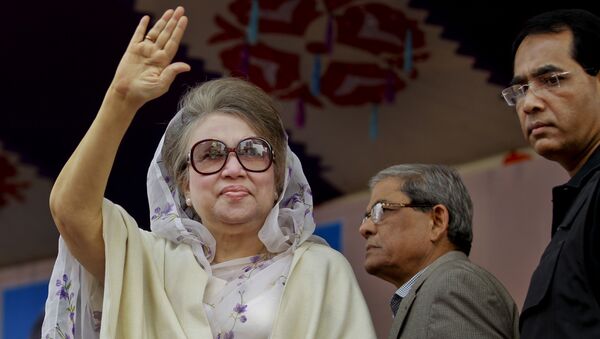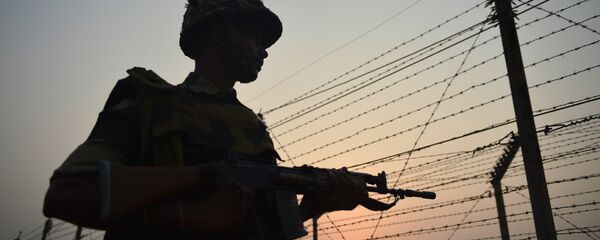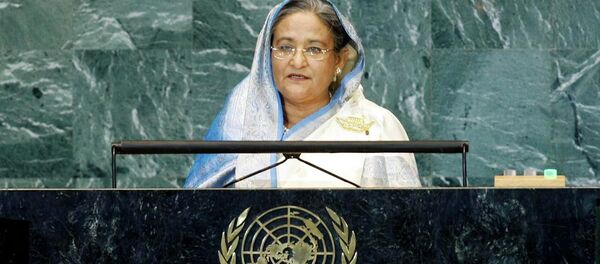Khaleda Zia, the former prime minister, was sentenced to five years in prison on charges of embezzling government money meant to go to an orphanage trust fund in 2007. She was also charged with more than 30 other crimes of varying severity.
Zia has denied the charges, calling them a political hitjob. "This is an attempt to use the court against me, in an effort to sideline me from politics and elections and to isolate me from the people," Zia told reporters on Wednesday, when her sentencing seemed imminent.
Zia's son, Tarique Rahman, and four others were also sentenced to 10 years in prison. Rahman has lived in exile in London since the charges were first filed in 2007, and so was tried in absentia.
Violence erupted in Bangladesh's larger cities before and after the verdict, with injuries and arrests reported. The center of the violence was Dhaka, the nation's capital and the location of the trial. Thousands of Zia's supporters surrounded the car that was transporting her to the courtroom.
Altogether, more than 3,500 opposition activists were arrested, according to Bangladesh Nationalist Party (BNP) spokesman Rizvi Ahmed.
Zia is expected to appeal the verdict, but it may prevent her from standing in the upcoming Bangladeshi general election slated for the end of of 2018. "This is a false and staged case. No way will we accept this verdict," the BNP secretary general, Fakhrul Islam Alamgir, said after the hearing.
Zia, 72, is the leader of the BNP, a conservative party which controls seven of the 12 city corporations. The BNP also controlled 170 of the 350 seats in the Jatiya Sangsad, the unicameral Bengali Parliament, in 2006.
However, in 2014, the BNP boycotted the election after accusing the ruling left-wing Awami League of being "autocratic and illegal." Twenty-one people were killed and thousands of others arrested during election day clashes, which saw the uncontested Awami League claiming near-absolute control of the Jatiya Sangsad.
The BNP is expected to run again against the Awami League in 2018.
Since 1991, Bangladeshi politics have been dominated by two women: Zia, who was PM from 1991 to 1996 and from 2001 to 2006, and Awami League chair Sheikh Hasina, who was PM from 1996-2001 and from 2009 to present.
Zia's husband, Ziaur Rahman, reigned as president of Bangladesh from 1977 until he was assassinated by his political rivals in 1981. His widow took control of his BNP, where she became allied with the Awami League and their chair, Hasina. Together, they formed a coalition opposing President Hussain Ershad and his military dictatorship, eventually securing his arrest and imprisonment in 1990.
But relations soon broke down between the BNP and Awami League with their mutual rival out of the way.
Human Rights Watch slammed Dhaka for engaging in arbitrary arrests and called for the parties to show their commitment to democracy. "The Bangladesh government's claims to be open and democratic ring hollow as it cracks down on political dissent," said HRW Asia Director Brad Adams. "The government has a responsibility to prevent and minimise violence, but it needs to do so in a way that respects basic rights, not flouts them."







